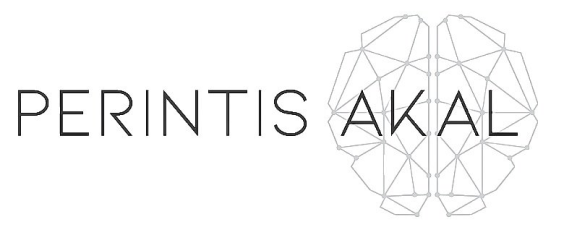Unemployment, especially amongst Malaysian youth, is rising. In fact, youth unemployment in Malaysia has been at a high of over 10% for the past two years in a row, reaching 10.8% last year. In 2017, graduate unemployment in particular constituted about 40.5% of total unemployment in Malaysia. This pegs Malaysia with the third highest rate in ASEAN – in comparison, the global youth unemployment rate was at 13% in 2018, three times higher than the figure for adults which was at 4.3%.
This isn’t a new problem. Malaysia has been struggling with the issue of general unemployment for years – youth unemployment has been above 10% since 2001. Generally, a high youth unemployment rate shows that many young people today are getting a slow start in the job market which may cause them to earn lower lifetime earnings. As unemployment rates tend to increase during a slowdown in emerging economies like Malaysia, we could very well see even more youth out of a job. After all, youth have always been most vulnerable to economic downturns – often the last to be hired and first to be made redundant because due to the age-old adage of a ‘lack of experience’.
Malaysians have been talking about youth unemployment for years with varying levels of patience. However, is it fair to blame it all on a “mismatch” of skills or “lazy millennials”? Or is youth unemployment a deeper issue that exposes gaps in the overall school-to-work system?
A Catch-22
 Most often, we have teachers, universities and employers pointing fingers at each other trying to blame the other for producing sub-par graduates. While employers often blame the educational system as a whole for not adequately preparing graduates for the workforce, some of that blame comes down on the students themselves for being unwilling or unable to perform suitably.
Most often, we have teachers, universities and employers pointing fingers at each other trying to blame the other for producing sub-par graduates. While employers often blame the educational system as a whole for not adequately preparing graduates for the workforce, some of that blame comes down on the students themselves for being unwilling or unable to perform suitably.
In some reports, employers have been quite scathing about the apparent unsuitability of fresh graduates to meet the standards of the workforce, citing reasons such as unrealistic expectations and a lack of soft skills.
Malaysian Trade Unions Congress president Datuk Abdul Halim Omar has remarked in the past that graduates have poor knowledge of what is needed in the field, making them unused to job requirements and make unrealistic demands regarding their starting salary and working hours.[1] The recent Job Outlook Report 2019 by JobStreet Malaysia noted that 68% of employers complained that fresh graduates were asking for “unrealistic” salaries and benefits – instead of asking for higher salaries, JobStreet advised fresh grads to adjust their expectations according to the expected salary level offered for that particular job.[2]
Other complaints lodged by employers include the lack of adequate communication skills of Malaysian graduates as well as the inability of graduates to think critically, creatively, and work independently. Graduates may be equipped with the right knowledge related to their field of study – the hard skills – but soft skills, such as the ability to communicate what they know in an effective and convincing manner, are often overlooked. Businesses expect that their employees should already know how to do things like speak convincingly to clients, understand and report what others have discussed, and present facts in a clear and concise manner – and usually do not want to have to train new employees.
These faults have been noted and repeated for as long as youth unemployment remains a problem in Malaysia. However, consider facts such as:
- Most job openings in Malaysia tend to be in low-skill jobs which aren’t where most university graduates are applying. There are only a handful of vacancies for high-skilled jobs. In 2018, 76% of all job openings were in elementary occupations; in 2017, 86.3% openings were in low-skill jobs.[3] Interestingly, unemployment is higher amongst youth with tertiary qualification than those without – which means that overall, there are three times more (10.8%) jobless youth than there are unemployed adults. Could this be suggestive of a job market that does not reflect the true composition of the workforce and talent pool?
- Because the number of high-skill jobs are low, competition is fierce – and not just between graduates. More often than not, fresh graduates are going up against industry professionals who have more work experience and related skills that will be more attractive to employers. Therein lies the catch-22; most jobs require working experience to apply but fresh graduates need jobs to get that experience!
- There has been a decrease in starting pay over the years. For example, an average fresh graduate with a diploma could earn RM1,458 in 2010 but only RM1,376 in 2018. There was a similar decline in the same period for the average master’s degree holder from RM2,923 in 2010 to RM2,707 in 2018.[4]
- Monthly expenses across Malaysia have also risen exponentially over the years. Considering that RM2,700 was the living wage – the income level needed for a single adult to achieve a minimum acceptable standard of living in Kuala Lumpur – recommended by Bank Negara Malaysia in 2018, this does not leave much left in terms of savings for fresh graduates who are likely earning under RM3,000 a month.
- While soft skills such as communication and fluency of English can be taught in universities, learning continues while on the job. Often enough, companies still have to train their employees in professional skills during employment – many companies today offer on-the-job training which teaches the skills, knowledge and competencies needed for employees to perform specific jobs within the workplace. This sort of training is difficult to teach in universities without involving the expertise of industry professionals.
What can be done?
 Youth today are fully conscious of the difficulty of finding a job after graduation. Many are disillusioned with the fact that despite getting top-quality education from a good university, the chances of getting a job remain a challenge, let alone a well-paying one. Even a foreign degree, once coveted and sought after by Malaysians, is no longer a guaranteed path to a well-paying job.
Youth today are fully conscious of the difficulty of finding a job after graduation. Many are disillusioned with the fact that despite getting top-quality education from a good university, the chances of getting a job remain a challenge, let alone a well-paying one. Even a foreign degree, once coveted and sought after by Malaysians, is no longer a guaranteed path to a well-paying job.
Students today aren’t looking for a basic education anymore. They can’t afford to. Instead, they’re looking for universities and programmes which can give them an edge when applying for jobs. In a way, getting an education has become a secondary goal after getting a decent job which ultimately, isn’t sustainable.
Therefore, how can the whole education-work ecosystem work together to get more youth hired?
Khazanah Research Institute (KRI) released a report in December last year on tackling the school-to-work transition of youth in Malaysia.[5] The report recommended strategies such as:
- Promoting the teaching of soft skills and work-based learning
- Incentivising employers to provide work-based learning
- Doing an overall review of wage levels and differentials to allow for living a fair and decent wage instead of just a minimum wage
- Strengthening bond between employers and education/training institutions to promote youth employability

Figure 1: Youth labour supply vs demand of the workforce from the KRI report
The KRI report rightfully puts part of the responsibility of turning out valuable graduates back on the employer. Isolating youth from the workforce isn’t sustainable as eventually the elder generations will retire and there will be no one to replace them.
As a consultancy that regularly hires young Malaysians as part of the team, PEMANDU Associates has a unique insight into youth unemployment in Malaysia. Spurred by a philosophy they hold to called the ‘game of the impossible’, the firm strongly believes in on-the-job training, evidenced by the fact that a fair number of our consultants started off as fresh graduates and have learned and grown with each project.
One soft skill that can’t really be taught in universities that we teach in our lab process is the ability to successfully get buy-in and collaboration from high-level policymakers and industry professionals. In that light, we believe that both universities and industry professionals should work together to offer a more comprehensive education in order to produce skilled and employable graduates.
In fact, PEMANDU Associates has helped two private universities to reform their curriculum to keep up with the changing needs of the workforce and their students. Much like the proposals put forward by KRI, the intensive labs recommended that universities today focus on offering a holistic education which focuses on enhancing employability and life skills. Holistic education was defined by the labs as an education that achieves academic excellence, life skills and emotional wellbeing, with students being taught discipline-specific knowledge, thinking and problem solving, lifelong learning, communication skills, personal and social competencies, entrepreneurialism and global perspectives – an entire package from basic tertiary education to industry experience.
Moving forward
 However, one thing to note from all this is that our youth are resilient. We are seeing a higher rate of entrepreneurship and volunteerism amongst young people in Malaysia who see these activities as a viable alternative to the traditional nine-to-five job.
However, one thing to note from all this is that our youth are resilient. We are seeing a higher rate of entrepreneurship and volunteerism amongst young people in Malaysia who see these activities as a viable alternative to the traditional nine-to-five job.
More youth are also shouldering the responsibility to get themselves better prepared for the workplace by joining student councils and organisations while still in university. There has been a rise in student-led associations such as AIESEC and the International Council of Malaysian Scholars and Associates (ICMS) which organise networking events, internships with leading companies to earn some of that much-needed work experience and volunteering opportunities. Such organisations can provide students with a much-needed boost to their leadership skills and career development.
Combatting youth unemployment will take an entire country, from students to educators, employers and everyone else in the community. We can already see signs that more people are taking steps in the right direction; the task now is to keep up the momentum to ensure that more of the nation’s youth will be able to make their mark in the workforce.






